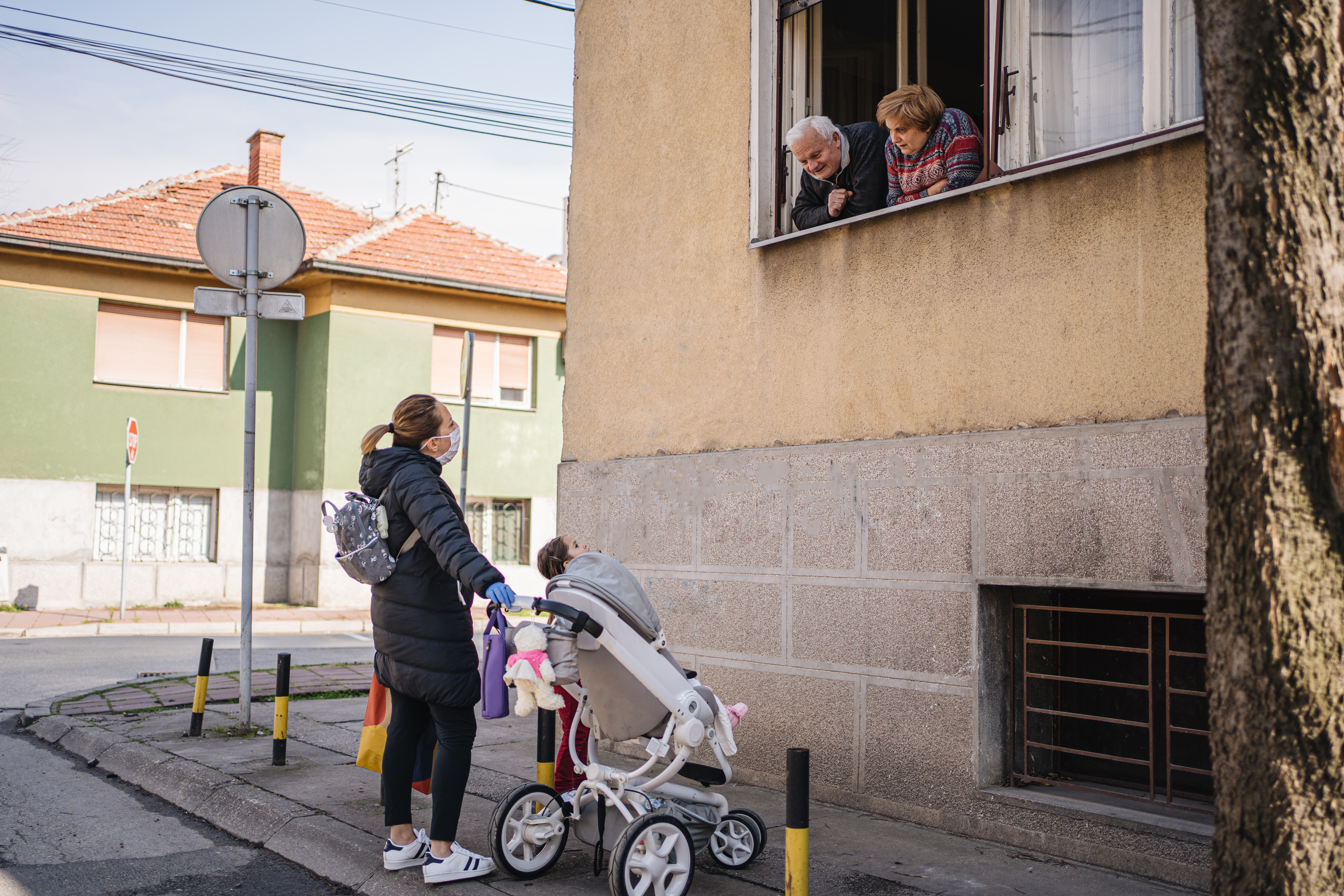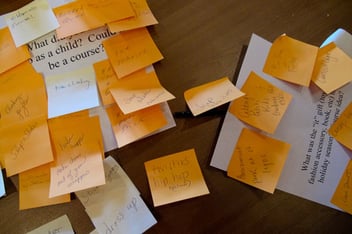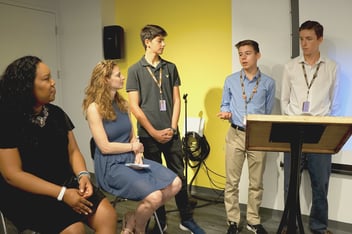The Importance of Teaching Children to Speak with Strangers

In the past few months, I’ve been spending a lot of time with parents, care givers, and seasoned educators. The picture that emerges is not pretty. Though the emergency stage of the pandemic is over, we’re not out of crisis. There are lingering consequences from COVID that our children will be living with for years unless we consciously address them. The list of consequences is lengthy, but I’m going to concentrate on just two.
For adults, our face to face socializing skills have gotten rusty. We’re out of practice. Thankfully, we have memories of what life used to be like and to some degree, like riding a bike, once you get back to interacting with others, you’ll remember what to do, what to say, and how it felt to be in dialogue with others. But if you did not have the opportunity to refine these skills before the pandemic, the path forward could be rocky.
The problem with kids is they are, well, kids. They are learning how to become adults, but that path is long, and there are many developmental stages along the way. When the stages are interrupted, then they can fall behind. As one veteran teacher described to me in painful detail, “This year my freshman arrived and I had a room of what felt like 7thgraders. It’s May, and they’re still struggling.” This comment is from a teacher in a high performing highly resourced school. The impact on low-income students in poorly resourced schools can be more devastating.
I’d like to say that kids will at some point just naturally pick up good face to face social skills, but given the disruption the pandemic has wrought on schools, extra-curricular programming, play dates, and just general socializing, that’s a strategy built on hope. Leaving the development of this critical skill to chance means some kids will develop strong face to face social skills and some will not. The development and refinement of a skill is tied to modeling and practice.
So much of learning to socialize as a young person is not explicitly taught. It comes from free play and hanging out with peers. Watching those just a year or two older are the role models that help you know how to act when you become older. But with school so thrown into disarray – either schooling from home or dramatic restrictions while at school, these natural patterns were disrupted. One educator told me, “It was a little sad this year. The seniors just didn’t know how to be seniors. They didn’t know how to be student leaders.”
For those of us who work with young people, the other thing we’re seeing is kids with heightened risk aversion and less tolerance of discomfort. Diagnosable anxiety is now commonplace. For many kids, peril feels like it is around every corner, and in some ways, it is when you’re living through a pandemic. Still, learning happens when we’re stretched to move beyond our comfort zones. We need to venture forth. Exploring the world of people, ideas, and places means coming in contact with strangers, engaging with new and strange ideas, and visiting new and strange places. This type of exploration – exploration of the unknown -- is incredibly important if our children are going to lead full lives, and to thrive in a future marked by volatility and uncertainty.
So what can you do this summer to help to combat some of the lingering effects of life during COVID?
- Limit screen time and prioritize socializing in person. This could be a family challenge. Perhaps this is the summer of the device free leaderboard. Who can log the most hours? A weekly tourney with small prizes leading up to an end of the summer champion.
- Talk with strangers. Really. There was a time when we weren’t instructing our children that every stranger might be dangerous. (In fact, overwhelmingly child abductions are by someone known to the child.) Learning how to engage appropriately with people you don’t know is an important skill.
How might your child safely practice speaking with strangers? It can happen while you’re on a walk, while waiting in line at the grocery store, or at the airport while you are waiting for a flight. Learning to chat with strangers is the skill of how to begin a new acquaintance. Bowdoin College’s Executive Director of Career Exploration and Development, Kristin Brennen, explains that often job opportunities come from networks and being able to have good conversations with strangers is one important way to go about expanding your network. With this in mind, Bowdoin students are paired with alums they don’t know for 20 minutes to engage in a get to know you conversation. I’ve been part of this program for several years and have enjoyed it immensely. And I ended up hiring one of these “strangers”!
Chatting with strangers might form the basis of a family challenge. Two conversations a week with someone you just met. Then during a family meal or hang out time, you all can share what you’ve learned about these new contacts.
- Explore a new place. This could be your own town or city, but a part of it you haven’t previously visited. You might visit a new museum or a new restaurant. Take a new path at a state park. The specific destination doesn’t matter as much as simply going someplace where you don’t exactly know what you’ll find. Part of the adventure is in the uncertainty and being open to the notion that even if you don’t know what is around the corner that it could well be something enjoyable and good. As a family, can you commit to an adventure in exploration every week or two?
- If your budget and schedule allow, you might consider a summer program or camp. The reason so many adults fondly remember summers spent at a program or camp is that they were able to relax, be themselves, meet new people, and often make lifelong friends. Without worrying about grades and homework or being judged, it was a safe place to stretch themselves. They took some risks and explored their interests. This combination of developing new friendships and new skills is a powerful combination. Without your parents around, you fully own this growth and it can be a real boon to your confidence. And the amount of growth that can happen in a few weeks is extraordinary.
One of the things COVID stole from many people was joy. We need to go in search of it again. For our young people, because so much child development involves interacting with others, helping them find the joy in being with others is a gift that will last a lifetime.
Notes: I’ve raised the notion of family challenges. The reason is that it’s much more likely that you and your children will follow through on reducing screen time or striking up conversations with strangers if you are holding each other accountable. Gamifying things can be quite fun and may be just the impetus your child – and you – need to make connections with others and to boldly reenter the world.
Moira Kelly is the president of EXPLO and someone who loves chatting with strangers.
If you’re looking for more evidence and support for the tremendous benefits of speaking with strangers, check out:
- Why Strangers Are Good For Us by David Sax, New York Times
- The Surprising Benefits of Speaking with Strangers by Joe Keohane, The Atlantic



